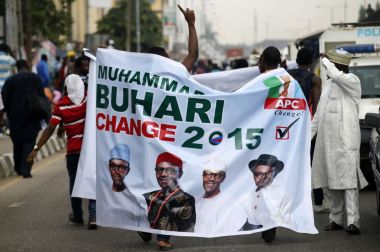Nigerian Christians welcome postponement of national elections

Nigerian President Goodluck Jonathan has faced criticism for postponing the forthcoming national elections, but Christians across the country have welcomed the move.
The Archbishop of Jos, Ignatius Ayau Kaigama, told Fides news agency that he hoped the decision was made "with good intentions and that, after having solved the problems cited by the Commission, elections are held".
Church leaders are doing all they can "to make sure that the election results are credible and accurate, hoping that this will contribute to peace in our country", he added.
The head of the Independent National Electoral Commission, Attahiru Jega, announced on Saturday that the presidential elections scheduled to take place on February 14 will now be held on March 28 – a six week delay.
Jega cited security issues, saying that there are not currently enough troops available to protect voters. The majority of the country's forces are battling terrorist group Boko Haram, which is operating mainly in the north-east of the country. The group has stepped up attacks in the lead-up to the elections.
"The commission cannot lightly wave off the advice of the nation's security chiefs," Jega said.
"Calling people to exercise their democratic rights in a situation where their security cannot be guaranteed is a most onerous responsibility."
Current president Goodluck Jonathan, from the south of Nigeria, is running for a second and final term. His main competition is Muhammadu Buhari, a Muslim candidate from the north of the country.
Buhari leads the All Progressives Congress party (APC), made up of four parties which merged to take on Jonathan's People's Democratic Party. It is expected to be a tight race.
APC chairman John Odigie-Oyegun said postponing the elections was a "major setback for Nigerian democracy" and some are accusing the government of foul play.
However, Tearfund's country representative for Nigeria, Danladi Musa, who is based in Jos, last week told Christian Today that insecurity was the biggest issue for voters, and that there was a real concern that voter cards would not be distributed to everyone, particularly in the North East.
"Many Nigerians are eager to cast their votes," he said, but the Commission was facing a significant challenges.
Rev John Bakeni, the secretary of the Roman Catholic Diocese of Maiduguri, has praised the move to postpone the elections, saying it will mean more people are able to vote.
"Many Christians here had not collected their voter cards and this may afford them time to do so," he said, according to the Washington Post.
"I hope they can do in six weeks what they have failed fix in five years," he said of the plans to tackle growing insecurity in Nigeria.











